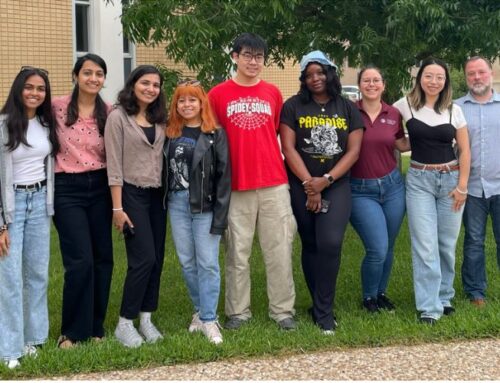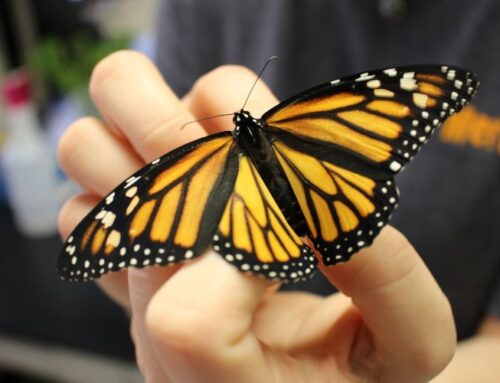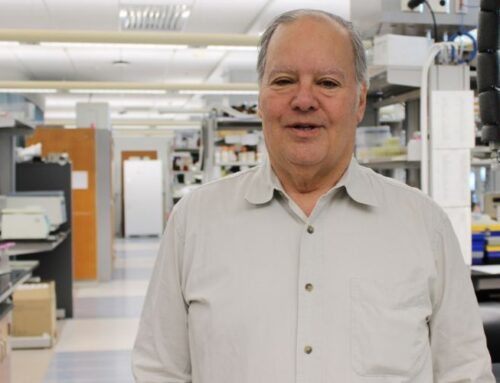Graduating Senior Spotlight: Daniel Nguyen
By: TAMU Biology
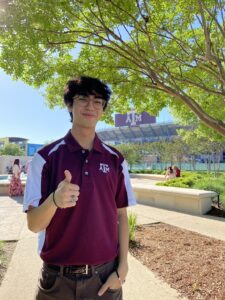 Meet Daniel Nguyen, a graduating senior in Molecular & Cell Biology this spring. Inspired by a high school experiment, Daniel’s passion for biology grew through his research and mentorship experiences. He plans to continue exploring computational biology during a gap year before pursuing a PhD.
Meet Daniel Nguyen, a graduating senior in Molecular & Cell Biology this spring. Inspired by a high school experiment, Daniel’s passion for biology grew through his research and mentorship experiences. He plans to continue exploring computational biology during a gap year before pursuing a PhD.
What inspired you to major in Biology at Texas A&M?
During high school, after a winter power outage, a teacher from one of my classes asked for volunteers to test whether restriction enzymes were still functional. Through DNA digestions and calculating expected fragment sizes, I discovered it was possible to engineer plasmids and transform them into hosts for study. I was fascinated by the idea that we could control biology for our benefit and wanted to learn more.
What has been your favorite biology class or lab experience, and why?
This is hard to choose, but my first significant class was Introductory Biology II with Dr. Duncan MacKenzie. The lectures and class book, Your Inner Fish, told a compelling story about the origin of life, sparking a sense of romanticism in biology that has stayed with me ever since.
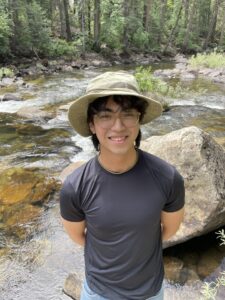 Tell us about a research project, internship, or student org that made a big impact on your time here.
Tell us about a research project, internship, or student org that made a big impact on your time here.
One of the most impactful parts of my time at Texas A&M was conducting undergraduate research on predicting isoform orthology between species. The project pushed me to think critically about algorithms and genomics, became my Undergraduate Scholars’ Thesis, and reflected the kind of work I hope to pursue in the future. This experience solidified my passion for developing computational methods that support biological discovery and help broaden both the impact and accessibility of bioinformatics.
What’s the most surprising or coolest thing you learned as a biology major?
In biochemistry, I learned that high protein intake can shorten lifespan by promoting growth processes that favor reproduction over maintenance. Organisms like crickets prioritize protein to ensure reproductive success. For example, crickets will resort to cannibalism when deprived of it. But this reproductive drive has trade-offs, as constant nutrient abundance can suppress cellular repair. Fasting or protein restriction shifts this balance and activates a conserved stress response pathway observed in yeast and mice. This perspective reshaped how I see metabolism as something we can actively modulate to support longevity.
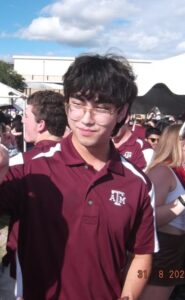 Who has been your biggest mentor or source of support at TAMU?
Who has been your biggest mentor or source of support at TAMU?
I’ve had many mentors that have helped me to be in the position I am in today. In particular, Dr. Rodolfo Aramayo stands out as a constant source of guidance and support. Working in his lab challenged me to think more critically and independently, and his mentorship has played a key role in developing my identity as a researcher. I’m also grateful to Dr. Wanhe Li, who allowed me to join her lab and trusted me with meaningful work. Her support allowed me to explore new techniques and perspectives that broadened my skills and deepened my interest in computational biology.
What are your plans after graduation?
After graduating with a B.S. in Molecular and Cell Biology, with minors in Bioinformatics and Computer Science, I plan to take a gap year to work in a research position and further refine my interests in preparation for a PhD in computational biology. My time at Texas A&M sparked a lifelong commitment to research and my dream of contributing to the technological forefront of using data to advance biological discovery.
What advice would you give to new Biology students?
Don’t be afraid to pursue opportunities, even if you feel underqualified or inexperienced. Texas A&M has a way of rewarding potential and your willingness to grow, even before you fully see it in yourself. I wish I had explored more student organizations and activities early on. Trying things, even those that don’t work out is how you eventually find your place and your people.
What Aggie tradition or memory will you treasure most?
Pulling tickets and tailgating for football games are some of my favorite memories. There was something special about standing in line late at night or early in the morning, surrounded by other tired but excited students. Knowing I was taking part in an Aggie tradition made it feel more fun than exhausting.



